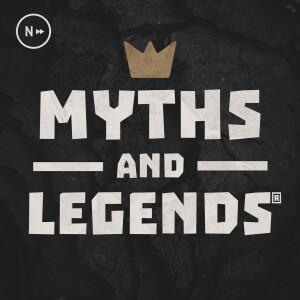

The Infinite Game: Embracing Endless Possibilities for Lasting Success
The Infinite Game by Simon Sinek is a book that explores the concept of playing an infinite game in both business and life. Sinek argues that traditional business practices, such as quarterly targets and competition-focused strategies, are based on a finite mindset that is detrimental in the long run. He believes that leaders should adopt an infinite mindset, which focuses on long-term success and aims to continuously improve and adapt.
Sinek introduces five essential practices for playing the infinite game. The first is to have a just cause, which is a higher purpose that inspires and motivates the organization. Next is to build trusting teams, as trust is crucial for collaboration and innovation. The third practice is to study worthy rivals and learn from them rather than trying to beat them. The fourth practice is to prepare for existential flexibility, meaning that organizations should be willing to make bold changes when necessary. Lastly, Sinek emphasizes the importance of demonstrating the courage to lead, which involves taking risks and making tough decisions in alignment with the infinite mindset.
The book also highlights the consequences of having a finite mindset, such as sacrificing long-term growth for short-term gains and prioritizing competition over cooperation. Sinek emphasizes that adopting an infinite mindset requires a shift in thinking, as well as a commitment to embracing uncertainty and focusing on the bigger picture.
Sinek provides numerous real-world examples of companies that have successfully embraced the infinite mindset, as well as those that have failed due to a finite mindset. He also emphasizes the role of leaders in creating and maintaining an infinite mindset within their organizations.
In summary, The Infinite Game by Simon Sinek explores the benefits of adopting an infinite mindset in business and life. It encourages leaders to prioritize long-term success, collaboration, and innovation, rather than short-term gains and competition. By following the five essential practices outlined in the book, organizations can create a culture that fosters growth, adaptability, and ultimately, a competitive edge in the infinite game.
Chapter 2:the meaning of The Infinite Game book"The Infinite Game" by Simon Sinek explores the concept of games and how they can be applied to different aspects of life and business. In the book, Sinek argues that life and business should be seen as infinite games, meaning that the goal is not simply to win, but to keep playing and keep the game going.
Sinek contrasts infinite games with finite games, which have clear rules and a clear endpoint. In finite games, the goal is to win, and once the game is over, the result is final. On the other hand, infinite games have no defined endpoint and the goal is to simply keep playing and thrive in a constantly changing environment.
Sinek argues that adopting an infinite mindset can lead to more sustainable success and fulfillment, as it encourages a long-term perspective and focus on continuous improvement. He stresses the importance of having a just cause, something larger than oneself that provides purpose and guides decision-making.
Throughout the book, Sinek explores the different elements that contribute to playing the infinite game successfully, such as building trusting relationships, maintaining flexibility and adaptability, and embracing a long-term approach. He also examines the consequences of adopting a finite mindset in an infinite game, emphasizing the importance of staying true to one's principles and values.
Overall, "The Infinite Game" encourages individuals and organizations to shift their mindset and strategies from one based on short-term wins to one focused on long-term sustainability and growth. It urges readers to reevaluate their purpose and motivations, recognizing that the true measure of success lies in the ability to adapt, persevere, and continue playing the game.
Chapter 3:The Infinite Game book chaptersChapter 1: The Finite and Infinite Games
In this chapter, Sinek introduces the concept of finite and infinite games. According to him, a finite game has known players, fixed rules, and an end condition, whereas an infinite game has unknown players, flexible rules, and no fixed end. Sinek argues that businesses and organizations should adopt an infinite mindset to thrive in the long term.
Chapter 2: The Game of Business
Here, Sinek explains why most organizations are playing a finite game. He discusses the consequences of focusing only on short-term wins and how it leads to unethical behavior, lack of trust, and short-term decision-making. Sinek emphasizes the importance of playing the infinite game of business and offers examples of companies that have succeeded by adopting this mindset.
Chapter 3: Just Cause
In this chapter, Sinek describes the importance of having a just cause, a higher purpose that goes beyond profit. He argues that organizations with a just cause attract talented individuals, inspire loyalty, and have a more sustainable impact. Sinek provides examples of companies that have successfully embraced a just cause and highlights the importance of enlisting others in the pursuit of that cause.
Chapter 4: Trusting Teams
Sinek discusses the role of trust in building strong and innovative teams. He explores the concept of psychological safety, where individuals feel safe to take risks and be vulnerable. Sinek argues that leaders should create an environment of trust and support to foster the growth and success of their teams.
Chapter 5: Worthy Rivalry
This chapter delves into the concept of worthy rivalry, where competitors can coexist and learn from each other. Sinek argues that focusing solely on beating one's competition limits growth and innovation. He shares examples of companies that have embraced worthy rivalry and benefited from the exchange of ideas and healthy competition.
Chapter 6: Existential Flexibility
Sinek explains the importance of being adaptable and flexible in an ever-changing environment. He discusses the need for organizations to be open to new strategies, embrace technology, and continuously improve. Sinek provides examples of companies that failed to adapt and suffered the consequences.
Chapter 7: Courageous Leadership
In this chapter, Sinek highlights the qualities of courageous leaders who are willing to make difficult decisions, take risks, and prioritize the well-being of their teams. He discusses the importance of empathy, vulnerability, and accountability in leadership.
Chapter 8: The Infinite Leader
Sinek outlines the characteristics of an infinite leader, who focuses on the long-term success of the organization. He discusses the need for leaders to have a balance between vision and execution, and to empower their teams to take ownership. Sinek provides examples of infinite leaders who have created thriving organizations.
In the final chapters, Sinek sums up the key principles and strategies for embracing an infinite mindset and provides actionable steps for individuals and organizations to apply these principles in their own lives and work.
Chapter 4: Quotes of The Infinite Game book- "In the Infinite Game, the true competitors are the ones who play by their own set of rules, who define themselves by their own standards, and who take responsibility for their own actions."
- "The goal is not to win in the Infinite Game, but to keep playing. To strive for something greater than ourselves, to work towards a cause that is larger than our own individual success."
- "In the Infinite Game, success is not measured by how much we've accumulated, but by how much we've contributed."
- "Leaders who embrace the Infinite Game inspire others to join them and work towards a shared vision."
- "In the Infinite Game, there is no such thing as 'best' or 'number one.' The focus is on continuous improvement and becoming better versions of ourselves."
- "In the Infinite Game, trust is the currency. Leaders must prioritize building trust by being transparent, consistent, and reliable."
- "To play the Infinite Game, we must have a clear sense of our 'just cause.' This is the higher purpose that gives our actions meaning and direction."
- "In the Infinite Game, resilience and adaptability are key. We must be willing to learn from failure and adjust our strategies accordingly."
- "Playing the Infinite Game requires a long-term perspective. Success is not measured by short-term wins, but by the lasting impact we have on others and the world."
- "In the Infinite Game, the journey is just as important as the destination. We must enjoy the process and find fulfillment in the pursuit of our goals."
More Episodes
All Episodes>>Creat Yourt Podcast In Minutes
- Full-featured podcast site
- Unlimited storage and bandwidth
- Comprehensive podcast stats
- Distribute to Apple Podcasts, Spotify, and more
- Make money with your podcast














